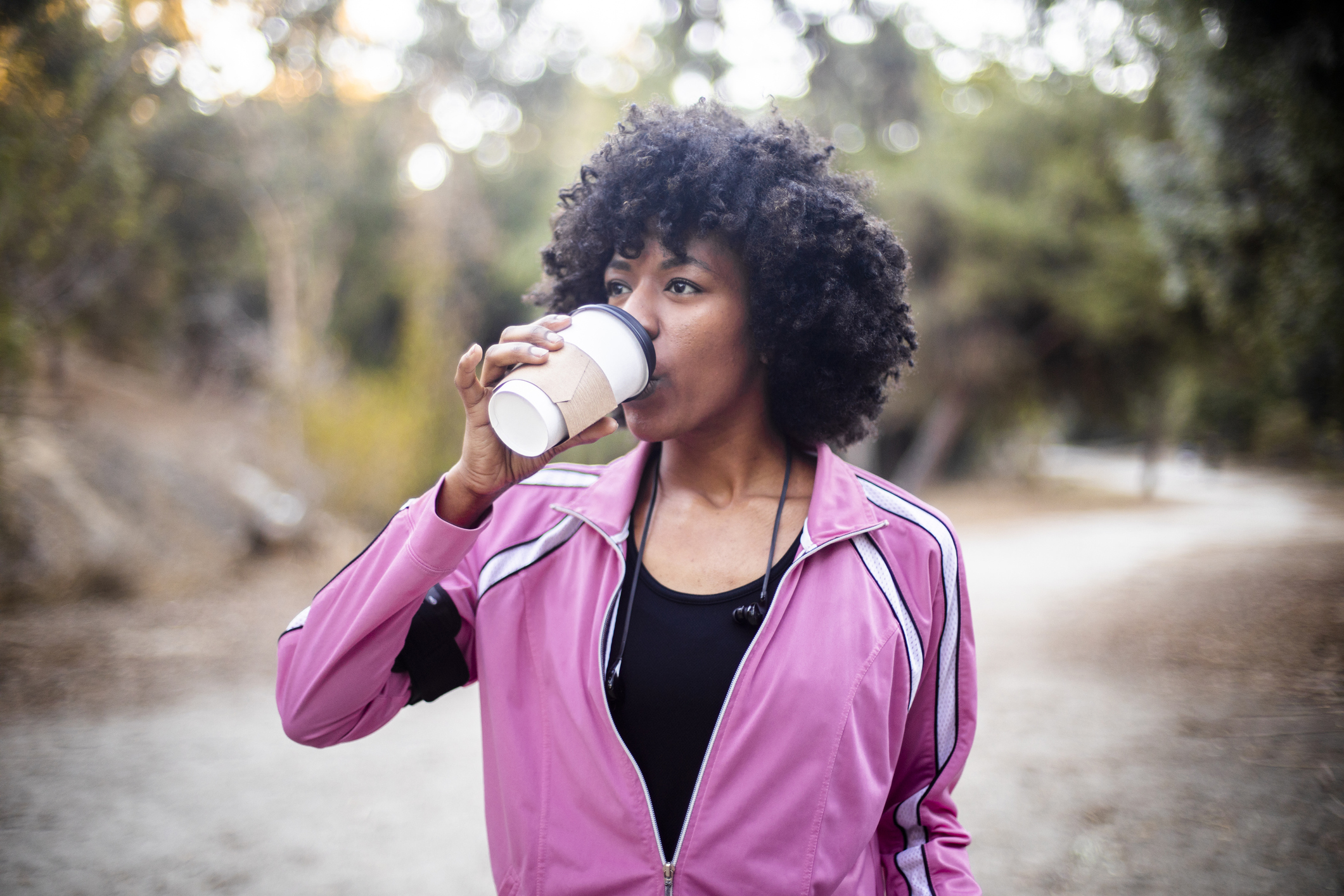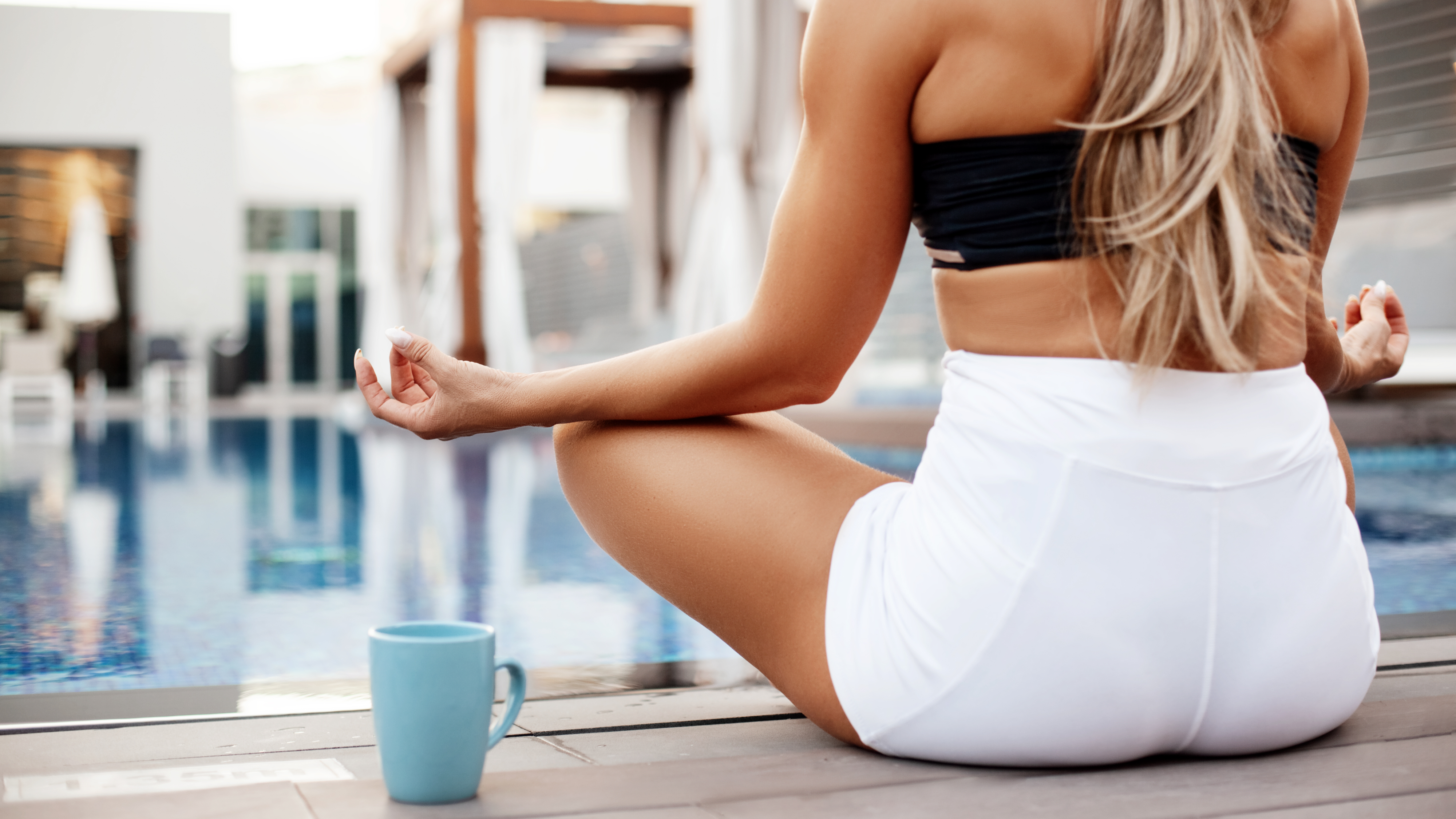Should you drink coffee before a workout? Here’s what it does to your body
Pre-exercise caffeine is a smart idea for some, but for others, it could be impacting their wellbeing

For caffeine lovers, sipping on a coffee before a workout seems like a no-brainer— whether that's a pick-me-up before an early-morning sweat session, or a boost before exercising later in the day.
After all, if a flat white can power you through that work deadline, then surely it can leave some energizing sparkle on your exercise routine?
Not so fast. Before you stop at Starbucks on your way to the gym in pursuit of that PB on the squat rack (new to weights? Fear not—get started with these best dumbbells for women), it’s worth balancing up the pros and cons of a pre-training caffeine fix.
Because, as you'll find out, you need to take into account a number of factors—including the time of day, as well as your present stress levels—when deciding if it's the right way for you to fuel up as you lace up...
- Activewear accessories: Everything you need for your best workout ever
- Best time to do yoga: is morning or night better for your practice?
- Best reusable water bottles: our top tried and tested picks
Coffee before a workout: A good or bad idea?

It could help your fitness goals...
“Coffee contains caffeine, which acts as both a physical and mental stimulant to energize and power you through your session,” explains Aliza Marogy, a nutritional therapist and founder of Inessa. “There's evidence it can improve performance times in races, and improve session outcomes by suppressing muscle pain.”
Interestingly, a recent study published in the Journal of the International Society of Sports Nutrition found that drinking coffee half an hour before aerobic exercise could increase fat burning—with the positive effects higher in the afternoon compared to the morning. Previous research has also linked caffeine to increased alertness and concentration, which could help you stay motivated and focused on the workout at hand.
Indeed, the International Society of Sports Nutrition has concluded, after reviewing the research to date, that caffeine can enhance multiple aspects of exercise—from muscular endurance and strength to sprinting and jumping. "Running, cycling and rowing, as well as resistance training in the gym and intermittent sports such as football and rugby are workouts that have been particularly found to benefit," says Katrin Schlee, a personal trainer at fitness platform Gympass.
But it may affect your wellbeing…
However, that pre-exercise cuppa might not be helpful for everyone. “Caffeine can cause an increase in cortisol, a stress hormone,” warns Louise Lewis, a registered nutritionist specializing in women’s mental wellness. “So, if you’re already feeling stressed, you don’t want to add to that load.”
For those leaning towards burnout, Lewis also advises against working out fasted, with just a coffee to propel you through your morning training session. "It would be better to have a small snack, like an energy ball instead—and wait to have coffee after your workout," she explains. "If you're exercising in the evening, I wouldn't recommend fuelling up for it by having caffeine after 3pm as it can stay in your system and you’ll feel its stimulating effects up till bedtime—if you struggle with sleep, be especially conscientious about this."
So, how to know if your pre-workout coffee is a good idea? "Caffeine sensitivity varies from person to person, with some tolerating higher amounts and others experiencing unwanted side effects after just a single mug of coffee," notes Schlee.
"Common side effects include anxiety, nervousness, increased heart rate, a rapid pulse, irritability and disrupted sleep. If you link your caffeine consumption to these, it's best to refrain from using it to power your exercise." Because, remember, fitness is as much about feeling good as reaching numerical goals, be they kilograms or kilometers...

So, what’s right for you?
“If you’re working out early in the day, and you’re used to drinking coffee, consider consuming it before you train,” says Marogy. “To get the best out of your pre-exercise brew, aim to drink it 45 to 60 minutes prior to exercise." This allows time for caffeine to be absorbed into the bloodstream and reach its peak effectiveness.
But listen to your body. “Be mindful—if it’s part of your morning ritual and you feel good afterward, then it’s ok,” explains Lewis. "But also think about whether you are drinking enough water—are you relying on coffee as your main drink? With caffeine also a diuretic, meaning you may be urinating more, you risk dehydration. Which won’t make for a good workout."
She adds: “Are you reliant on the coffee to give you enough energy for a workout? You could be pushing yourself too hard and rest might actually be more beneficial for you, or a slower activity like walking or yoga.” Need some help to wind down? Here's how to relax if you're feeling overwhelmed.
Lauren is a freelance writer and editor with more than six years of digital and magazine experience. Most recently, she has been the Acting Commissioning Editor of Women's Health—where she co-produced the Going For Goal podcast—and has previously also written news and features for titles including The Telegraph, Grazia, Stylist, Dazed, The Sun's Fabulous, Yahoo Style UK and Get The Gloss. She covers all aspects of lifestyle, specializing in health, beauty, and travel. Can't live without: oat milk lattes, new podcast episodes, long walks, and great skincare.